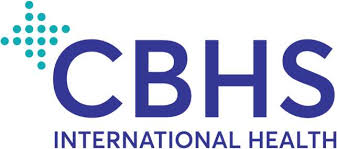 Allianz Care Australia
Allianz Care Australia
 CBHS International Health
CBHS International Health
If you’re among the 2.7 million Australians living with asthma, you’ll be all too aware of the need to be proactive about your health. According to the 2021 Census, asthma is the third most common long-term health condition in Australia (behind mental health conditions and arthritis). So do you need health insurance for asthma? Here’s what health insurers cover to help you – or your child – live with this respiratory condition.

Do I need Hospital Cover for asthma?
In an emergency, such as a severe asthma attack or flare-up, you’ll always get free treatment in public hospitals under Medicare. But when it comes to non-emergency treatments for lung and respiratory conditions such as asthma, having Hospital Cover can make a big difference. Private health insurance means you can go to a private hospital quickly, choose your doctor and, if available, get your own room.
You’ll need to have cover for Lung and Chest, which is generally only included in Silver and Gold tier Hospital Cover policies, although insurers may choose to offer it on Bronze and Basic policies (with restrictions). Of course, you’ll need to have served the relevant waiting periods.
What tier of health insurance do I need?
Are you covered for Lung and Chest treatments? Contact your insurer.
What about Extras Cover health insurance for asthma?
Depending on your asthma triggers and the Asthma Action Plan you’ve developed with your healthcare professionals, there may be lifestyle changes you can make to help you manage your asthma. If you need professional support with these lifestyle changes, such as the advice of a dietician or other allied health professional, you may be able to claim that cost on your Extras Cover. However this depends on your Extras policy, level of cover, policy limits and waiting periods. Try the healthslips.com.au Calculator to find the best health insurance for asthma.
Here are some of the asthma management changes that may be supported by your Extras Cover.
Quitting smoking
If you or someone else in your household has asthma and lives with a smoker, quitting smoking will make a big difference. Some insurers cover nicotine replacement therapies if prescribed by a GP, while others allow you to claim back the cost of eligible smoking cessation programs. Check with your insurer about what’s available under their Health Management/Healthy Lifestyle category.
Getting vaccinated
Asthma Australia recommends people with asthma get vaccinated against pneumococcal disease and the flu. Talk to your GP to get advice on what vaccinations are right for you. The types of vaccines covered by insurance will depend on the level of Extras Cover you have, so check with your insurer about their Vaccinations cover and conditions.
Exercising regularly
Although exercise can be an asthma trigger, being active (safely) is also recommended to manage your condition. If your GP recommends working with an exercise physiologist to develop a fitness plan that caters to your healthcare needs, this may be covered by Medicare or your health insurance. Some Extras Cover includes Exercise Physiology, but you’ll need to meet certain conditions, such as working with an accredited exercise physiologist, so it’s best to check with your insurer first.
Eating well
Following a healthy diet may help you manage your asthma – and can also be helpful to manage your weight, which is another factor in controlling asthma. If your GP recommends seeing an accredited practising dietician for nutrition advice, your sessions may be covered under Medicare or your health insurance, if you’ve got cover for Dietetics/Dietary Advice.
Improving your wellbeing
Your Extras Cover might cover classes where you learn how to manage asthma better. Programs to help you manage stress and weight, as well as your gym memberships, can also fall into the Health Management/Healthy Living Programs category of Extras cover, so it’s a good idea to get familiar with what your policy covers.
Is asthma medication covered by Medicare?
According to the National Asthma Council, relievers (used when you have asthma symptoms) are usually available from pharmacies without a prescription. Most adults and some children will be prescribed preventer treatment, depending on their health needs. Part of the cost of most asthma medication is subsidised by the Pharmaceutical Benefits Scheme (PBS) for eligible patients who have a Medicare card. Ask your healthcare professional for advice on your medication, including costs.
Important to know
The advice in this article is general in nature and must not replace the advice given by a qualified healthcare professional. We recommend you talk to your healthcare professional before making any changes to your lifestyle or trying new treatments for asthma.
In the event of a severe asthma attack or flare-up, call 000 or go to the emergency department at your closest hospital immediately.

Knowledge is power – that’s the guiding principle behind everything Trudie writes, and it’s a philosophy she brings to her work at healthslips.com.au. By breaking down complex information into easy-to-understand blogs and stories, she aims to empower Australians to make the best choices and an informed decision around private health insurance.
Trudie understands firsthand some of the complexity of private health insurance having moved to Australia from New Zealand and having to navigate a vastly different public healthcare system and health insurance structure.
Trudie holds a Bachelor of Communication Studies (journalism major) from the Auckland University of Technology.
Policies change monthly, stay informed
- Insurers regularly update policies, introduce new policies and close policies. Our data is updated monthly.
- We will only send information relevant to you. You can unsubscribe at any time. See our Privacy Policy.





